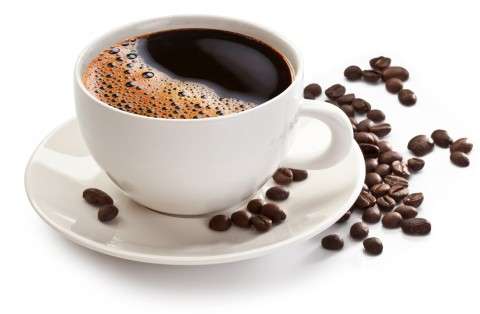April 18, 2017
Caffeine is sometimes called “the world’s most popular drug”.
It’s actually a naturally occurring chemical compound found in over 60 types of plants, including coffee beans, tea leaves, cocoa beans, guarana and kola nuts. It’s one of the most commonly used ergogenic aids (something intended to enhance physical performance, stamina, or recovery) in the world, and the most well researched one. So what does that research say?
Firstly, we know that its main effect of this stimulant is on the brain, helping to increase alertness and reducing fatigue. It’s also used for fat loss and in sports training. And it is safe and effective for these purposes…to a certain extent.
Let’s hash out the details of the benefits (and risks) of caffeine for sports training. We’ll also touch on caffeine supplements, coffee, and energy drinks, as well as the use of caffeine alongside ephedrine.
HOW CAFFEINE WORKS
Caffeine is the most widely used stimulant in the world. About 80% of the world drinks a caffeinated beverage every day, mostly as tea or coffee. It’s absorbed in the stomach and intestinal tract, and within 45-60 minutes is circulating at its peak in the bloodstream, triggering a number of physiological stimulant responses in the body that may aid performance for up to 4 hours.
The stimulant effect of caffeine on the brain and central nervous system may allow an athlete to feel more alert, have increased focus, or experience improved body coordination. The metabolic effect of caffeine may mobilize fatty acids from fat tissue in the bloodstream and increase fat oxidation, thereby helping to spare muscle glycogen and protect the athlete from premature muscle fatigue (hitting the wall).
Caffeine supplements are approved in Canada to:
- Helps (temporarily) to:
- promote alertness and wakefulness,
- enhance cognitive performance,
- relieve fatigue,
- promote endurance,
- enhance motor performance.
- Used (temporarily) as a mild diuretic.
CAFFEINE AND SPORTS TRAINING
Caffeine has several uses in sports training. It has been shown to reduce fatigue and increase power output (i.e. for weight training). It can also increase training volume (the overall work performed during a workout).
A strong study (meta-analysis of 40 double-blind placebo-controlled studies) looked at the effects of caffeine on three kinds of exercise: endurance, graded, and short-term. The results showed that caffeine improves endurance exercise the most. Caffeine delayed the time-to-exhaustion.
Most of the endurance studies looked at running, cycling and cross-country skiing.
The average improvement for endurance has been shown to be 3.2%, up to 4.9%.
In terms of sustained high-intensity exercise (i.e. 1-20 min running, cycling, swimming, and rowing), caffeine helps to improve these as well.
But what about hydration?
In terms of hydration, studies show that ergogenic doses of caffeine (less than 300mg or approximately 3 cups) do not dehydrate. It doesn’t change sweat rates, urine losses, or other indicators of hydration. This is likely due to how adrenaline blocks caffeine’s effect on the kidneys. Doses exceeding 300mg, however, can interfere with hydration status, and may affect heart rate, sleep patterns or irritate the stomach; all issues that can be disruptive for the athlete.
How much should I take, and when?
Doses of approximately 100-200 mg every 3-4 hours, split either pre or intra-workout or all at once, is a common dose. This reflects most research that shows positive performance effects.
Taking doses much more than recommended doesn’t seem to further improve performance, and in fact, higher doses may also start to impair performance, along with the usual jitters and increased heart rate.
It seems that the ideal time to take caffeine is about one hour before you need it. It has also been effective when used during exercise, or after the onset of fatigue. The exercise benefits can last for several hours after caffeine is ingested.
Because we can develop a tolerance to caffeine, its effect is greater if you avoid it for at least 7 days beforehand. However, withdrawal symptoms, such as headaches, are often experienced during a washout, which can negatively interrupt training.
CAFFEINE SAFETY
Caffeine is widely consumed around the world, mostly in drinks. It is generally recognized to be safe. High doses (400 mg) have been related to side effects such as increased blood pressure, anxiety, heart palpitations, headache and dizziness.
Caffeine supplements approved in Canada come with the following warnings:
- Consult a health care practitioner prior to use if you are taking lithium, if you have high blood pressure, glaucoma, and/or detrusor instability (overactive bladder syndrome).
- Consumption with natural health products (e.g. bitter orange extract, synephrine, octopamine, ephedra) or other drugs (e.g. ephedrine) that increase blood pressure is not recommended.
- Consumption with other caffeine-containing products (e.g. medications, coffee, tea, colas, cocoa, guarana, maté) is not recommended.
- This product is not intended as a substitute for sleep.
- For doses greater than 300 Milligrams per day: Consult a health care practitioner if you are of childbearing age, pregnant or breastfeeding.
- For doses greater than 600 Milligrams per day: Caffeine may cause anxiety, tachycardia (rapid heart rate), palpitations, insomnia, restlessness, nervousness, tremor and headache.
- Hypersensitivity/allergy is known to occur, in which case, discontinue use.
CAFFEINE VS COFFEE/ENERGY DRINKS
Of course, coffee is only about 2% caffeine, and has many other compounds in it. One 150 mL cup of coffee can have between 40-180 mg of caffeine, while the same amount of tea can have 24-50 mg. Soda pop has even less, and cocoa products even less than that.
What about energy drinks?
There are many concerns with commercial energy drinks and excessive amounts of caffeine are only one of them. Most are high in sugar in the form of high fructose corn syrup and/or cane sugar. Many others contain high amounts of artificial chemical sweeteners, which pose their own health risks. Of immediate concern is the intestinal bloat and disruption that chemical sweeteners pose for many athletes – not a welcome situation during competition!
Many sports drinks can also contain too much of a good thing – specifically B-vitamins. These are often added for the energy production they provide, however excessive amounts of various Bs have been shown to contribute to flushing of the skin, and even liver toxicity (The British Journal of Medicine).
Along with vitamins, minerals and carbs, taurine is also added to caffeine-containing energy drinks. Taurine is an amino acid (from protein) that is naturally found in the body. It is thought to have anti-inflammatory and antioxidant properties. It’s added to these drinks to help improve cognitive and physical performance, but there is little research on this.
However, a more recently published (February 2017) review of 34 studies looked at the effect of energy drinks on sports performance. It showed improvements in muscle strength, endurance, jumping, and sport-specific actions (but not sprinting). The results of this study concluded that these benefits were from the taurine in those drinks, and not the caffeine. The people in these studies were young and trained, so it is not known if or how this may apply to people who are older or less fit.
The take-away with sports drinks is to beware of ingredients other than caffeine and determine what might be helpful vs harmful to your athletic endeavors and health overall.
CAFFEINE AND EPHEDRINE
Caffeine and ephedrine (one of the active components of the herb “ephedra”) seem to be synergistic when it comes to appetite suppression and fat burning. This means that there is more fat burned when the two compounds are taken together, than what is expected based on either compound taken alone.
While ephedrine supplements are approved for use in Canada for nasal decongestion, they come with a whole host of cautions, warnings, and contraindications.
One warning in particular is with its use with caffeine: “Consult a healthcare practitioner prior to use if you are taking other products which contain caffeine.”
Ephedrine availability is also tightly controlled, as it is used as a precursor for illicit drugs, namely methamphetamine. Ephedrine is also banned by certain sports agencies.
I strongly advise to review all the warnings, and only take the ephedrine under medical supervision.
SUMMARY
- Caffeine is a natural stimulant, and is “the world’s most popular drug”.
- It’s in coffee, tea, chocolate, energy drinks, and some supplements and medications.
- The average sized cup of coffee has about 100mg of caffeine (it can vary greatly, anywhere from 40-180mg per cup)
- Doses of 100-200 mg help to improve thinking, fight fatigue, and promote endurance and performance.
- Studies show that endurance can be improved up to 5% with caffeine.
- The best time to take caffeine is about one hour before you need it.
- Coffee may have the same effect as supplements.
- Energy drinks with taurine may help sports performance.
- Taking caffeine with ephedrine can be dangerous.
- Caffeine can have side effects such as increased blood pressure, anxiety, and insomnia. It may also interact with some medications and medical conditions.

At the end of every month we summarize in an email to you all the exciting new things we’ve been researching to help you in your health and fitness journey. Don’t miss out, be sure you’re on our email list, and tell your friends to do the same!
Only occasional good stuff, with no spam! Sign up now.
Caffeine & Sports Performance
The entire contents of this website are based upon the opinions of Build Holistic Nutrition. Please note that Build Nutrition is not a dietitian, physician, pharmacist or other licensed healthcare professional. The information on this website is NOT intended as medical advice, nor is it intended to replace the care of a qualified health care professional. This content is not intended to diagnose or treat any diseases. Always consult with your primary care physician or licensed healthcare provider for all diagnosis and treatment of any diseases or conditions, for medications or medical advice, as well as before changing your health care regimen.
© BUILD NUTRITION 2026. ALL RIGHTS RESERVED. PRIVACY POLICY
Go ahead, creep us on social. You know you want to!
